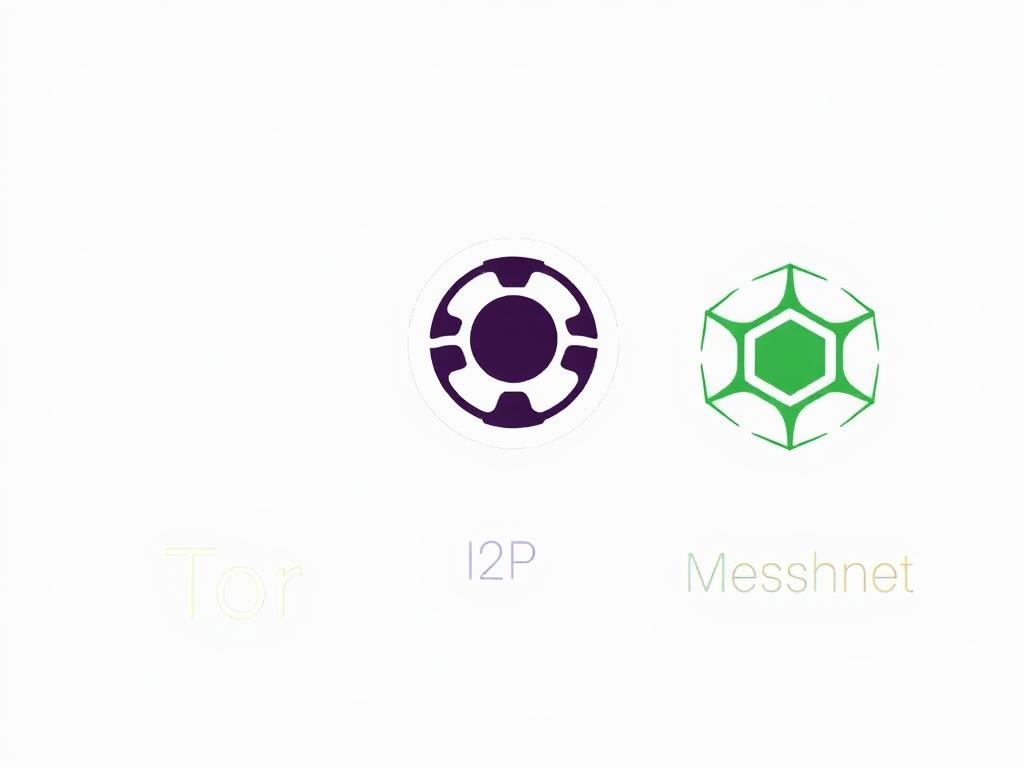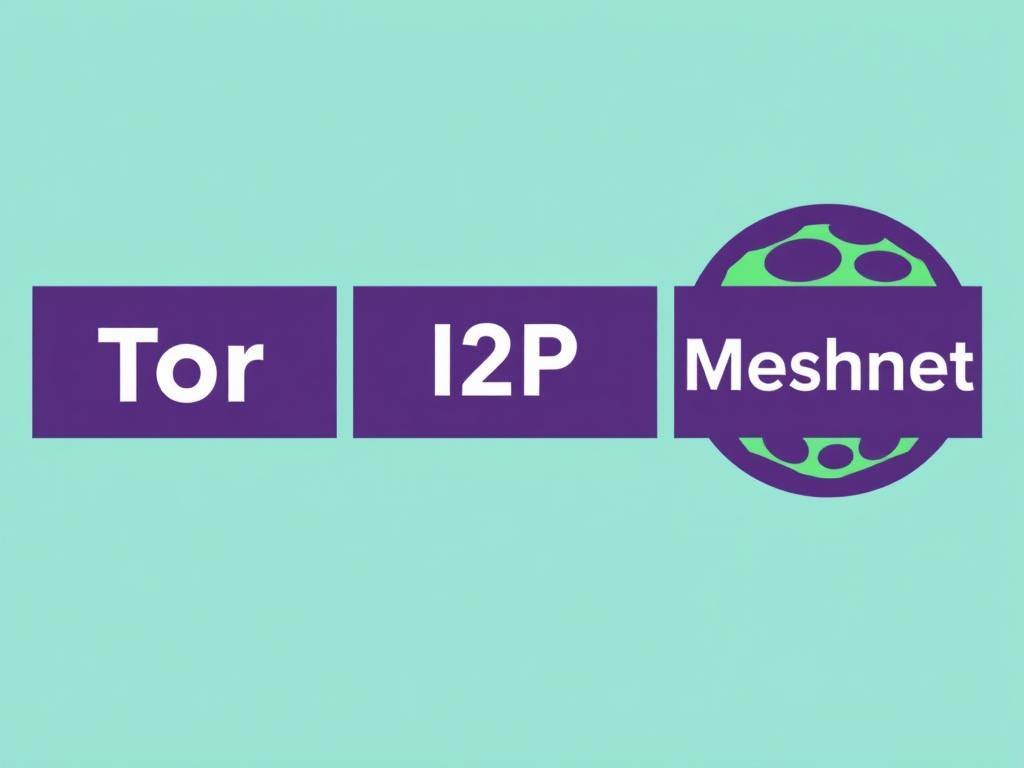In today’s digital age, privacy has become a major concern for internet users around the world. As governments, corporations, and cybercriminals increasingly invade our online lives, finding reliable privacy tools is essential. Among the many options available, Tor, I2P, and Meshnet stand out as popular choices for maintaining anonymity and secure communication. But how do these technologies truly compare? What makes one better suited for your privacy needs than the others? In this article, we’ll take a deep dive into each option and break down their strengths, weaknesses, and typical use cases. By the end, you will have a clear understanding of Tor, I2P, and Meshnet for privacy so you can pick the best fit for your needs.
Understanding Tor: The Onion Router
Tor, short for The Onion Router, is perhaps the most widely known privacy tool today. It works by routing your internet traffic through a worldwide network of volunteer servers (called relays), encrypting it multiple times like the layers of an onion. Each relay peels away one layer of encryption, making it very difficult for anyone to trace the origin or destination of your data.
Users mainly rely on Tor to browse the internet anonymously, access restricted websites, or protect their identity from surveillance. One of Tor’s attractive features is the Tor Browser, a modified web browser pre-configured for privacy. But Tor has limitations too—it can be slower than regular browsing because of the multiple hops, and not all traffic or applications are supported easily.
Key Features of Tor
- Strong anonymous browsing via multiple relays
- Access to .onion hidden services that are uncensored
- Open source and supported by a large community
- Suitable for individuals seeking privacy on the public internet
Exploring I2P: The Invisible Internet Project
I2P (Invisible Internet Project) takes a somewhat different approach to privacy and anonymity. It is designed as an anonymous overlay network that provides hidden services and secure messaging, primarily within its own network rather than the public internet. Unlike Tor, which focuses on anonymous access to the wider internet, I2P emphasizes internal communication between users in a peer-to-peer fashion.
An advantage of I2P is its resilience and speed compared to Tor, especially when accessing peer-hosted services like forums, blogs, or file sharing within the I2P network. It also supports applications such as anonymous email and chat. However, I2P’s learning curve is steeper for new users, and it is less effective if your goal is anonymous web browsing of regular internet sites.
What Makes I2P Unique?
- Optimized for anonymous hosting and communication within its own network
- Peer-to-peer structure with encrypted tunnels
- Faster speeds for internal services than Tor
- Less mainstream, often preferred by more tech-savvy users
The Rise of Meshnet: Decentralized Privacy Networks
Meshnet represents a newer concept aimed at decentralized networking. Rather than relying on a centralized service or predefined relays, mesh networks connect devices directly or through nearby peers in a scalable, ad-hoc manner. The goal is to build an internet alternative where privacy and security are baked in by design.
Meshnets are especially useful in situations where traditional internet infrastructure is unavailable, censored, or compromised. By routing traffic through trusted nodes within a mesh, users can maintain privacy and resilient communication without depending on large corporations or governments. Examples of meshnet technologies include cjdns, Yggdrasil, and commercial solutions like Tinc or ZeroTier.
Advantages of Meshnet for Privacy

- Decentralization removes single points of failure or surveillance
- Often encrypted end-to-end communication between nodes
- Works well in disconnected or censored environments
- Enables private communication and resource sharing at local or global scales
Side-by-Side Comparison of Tor, I2P, and Meshnet

To give you a clearer picture, here’s a table summarizing the key aspects of each privacy technology:
| Feature | Tor | I2P | Meshnet |
|---|---|---|---|
| Primary Purpose | Anonymous browsing of the public internet | Anonymous internal network communication and hosting | Decentralized networking with encrypted communication |
| Network Structure | Volunteer relays forming layered routing | Peer-to-peer encrypted tunnels | Ad-hoc direct peer connections |
| Speed | Often slower due to multiple hops | Generally faster within its network | Depends on proximity and network size |
| Ease of Use | Easy with Tor Browser; mainstream | Moderate to difficult; less mainstream | Varies; setup can be technical |
| Best Use Case | Anonymous public web browsing | Anonymous communication within a private network | Privacy in decentralized or censored environments |
Choosing the Right Privacy Tool for You
So, which privacy solution should you pick? The answer depends on your requirements.
If your main goal is to browse the internet without being tracked, avoid censorship, or access hidden services, Tor is arguably the best choice. It is user-friendly, widely supported, and well-maintained by a strong community. However, be prepared for some speed trade-offs.
If you want to engage in secure, anonymous communication within a private network, host services hidden from the public internet, or prefer peer-based connections, I2P offers an excellent platform. It might require a bit of effort to learn but rewards users with better performance and control over internal services.
For those looking to break free from centralized infrastructure entirely while maintaining encrypted, private communication often in restrictive environments, Meshnet could be a game changer. It comes with novel architecture and promising features but demands some technical skills for deployment and use.
Summary List: When to Choose Each Privacy Network

- Tor: Use for anonymous public web browsing and accessing censored content.
- I2P: Use for private hosting, messaging, and anonymous activity inside a secure network.
- Meshnet: Use for decentralized, peer-to-peer networking when avoiding centralized control is a priority.
Risks and Limitations to Keep in Mind
While all three technologies enhance privacy, none offer perfect security or total anonymity in every scenario. Tor can be vulnerable to timing attacks or exit relay monitoring, I2P requires trust in internal peers, and Meshnets depend heavily on network topology and node reliability. Users should also remember that privacy tools do not replace safe online behavior such as avoiding suspicious downloads or sharing personal information improperly.
Conclusion
Choosing between Tor, I2P, and Meshnet for privacy boils down to understanding their unique designs and intended purposes. Tor excels at anonymous browsing on the open internet, I2P shines as a private network for hidden services and internal communication, while Meshnet offers a fresh approach to decentralized, secure networking. By matching your privacy goals with the right tool, you can better protect your identity, resist censorship, and enjoy a freer online experience. Remember, privacy is a layered process—choosing the right network is a key layer, but staying informed and cautious completes the picture.
